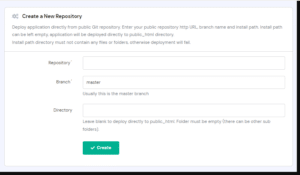Docker has emerged as a powerful tool in this regard, transforming how applications are developed, tested, and deployed. In this article, we will explore what Docker is, why it has gained popularity, and how it helps businesses streamline their DevOps workflows.
What is Docker?
Docker is an open-source platform that enables developers to automate the deployment of applications inside lightweight, portable containers. Each container packages an application and its dependencies, making it easy to deploy across various computing environments without compatibility issues.
Developed by Docker, Inc. in 2013, Docker is based on the concept of containerization—the idea of packaging an application and all its dependencies in a single package (or container) that can run on any machine, regardless of differences in operating system or configuration. This concept provides a solution to the common problem of, “It works on my machine, but not on yours.”
How Does Docker Work?
At its core, Docker uses the Docker Engine, a containerization runtime that builds and runs containers. Docker containers are isolated from each other and the host system, yet they can share the same underlying resources when needed, maximizing efficiency. Docker images, which are templates for creating containers, serve as a foundation. These images define the application and its environment, including the OS libraries and dependencies required.
Key Components of Docker
- Docker Images: Pre-configured packages that serve as blueprints for creating containers.
- Docker Containers: Lightweight, isolated instances created from Docker images, encapsulating applications and their environments.
- Docker Engine: The runtime responsible for managing and running containers.
- Docker Hub: A public registry where developers can share Docker images and pull pre-built images.
Why Do We Use Docker?
Docker has become an integral part of modern DevOps and application development for several reasons. Here are the main benefits:
1. Consistency Across Environments
With Docker, applications can run consistently across various environments, such as development, testing, and production. By using containers, developers can avoid the classic issue of “works on my machine,” ensuring that an application will perform the same way in any environment.
2. Faster and More Efficient Deployments
Docker containers are lightweight, launching in seconds and using fewer resources compared to virtual machines. This allows for rapid development, testing, and deployment cycles, making it ideal for Continuous Integration and Continuous Deployment (CI/CD) pipelines.
3. Improved Resource Utilization
Docker’s containers share the same OS kernel and efficiently utilize system resources, allowing multiple containers to run on a single host without the overhead of separate operating systems. This not only saves resources but also reduces infrastructure costs, making Docker an economical choice for businesses.
4. Scalability and Flexibility
Docker supports rapid scaling, enabling applications to meet fluctuating demand. Docker’s orchestration tools, like Docker Swarm and Kubernetes, allow you to manage and scale multiple containers across clusters of servers, further optimizing resource allocation and scaling capabilities.
5. Simplified DevOps Workflow
Docker streamlines workflows, allowing development and operations teams to collaborate seamlessly. By using containerized environments, teams can work on isolated parts of an application without interfering with each other, aligning perfectly with modern DevOps practices.
Real-World Use Cases of Docker
Many companies worldwide, from startups to tech giants, use Docker to optimize their development and deployment processes. Here’s how Docker can be applied across different industries and workflows:
Web Development and Hosting
Docker enables developers to host multiple versions of web applications on the same server, isolated in separate containers, which simplifies version control and dependency management.Big Data and Analytics
Docker helps data scientists and engineers package analytics tools, data processing applications, and ML models into containers for efficient execution across multiple environments.CI/CD Pipelines
Docker plays a crucial role in CI/CD workflows by providing isolated environments for continuous testing and deployment, ensuring that changes made to codebases are thoroughly tested before being pushed live.Microservices Architecture
Docker is perfect for microservices-based architectures, where different parts of an application are broken into smaller, independently deployable services. Each microservice can run in its own container, making it easier to manage, deploy, and scale.
Docker at Cybero Solutions
At Cybero Solutions, we leverage Docker to deliver scalable, high-performance applications to our clients. Our team uses Docker to streamline development workflows, reduce deployment times, and optimize resource use, aligning with our commitment to delivering top-tier solutions.
If you’re interested in adopting Docker or containerization in your business, our experts at Cybero Solutions are here to help you design, deploy, and manage your Docker environment for optimal performance and reliability.
Conclusion
Docker has transformed the way applications are developed, tested, and deployed, making it a vital tool in the software industry. By providing a consistent environment, improving scalability, and enhancing resource efficiency, Docker enables businesses to innovate faster and stay agile in a competitive landscape.
Explore how Docker can benefit your business with Cybero Solutions. Contact us today to learn more about our containerization and DevOps services!





